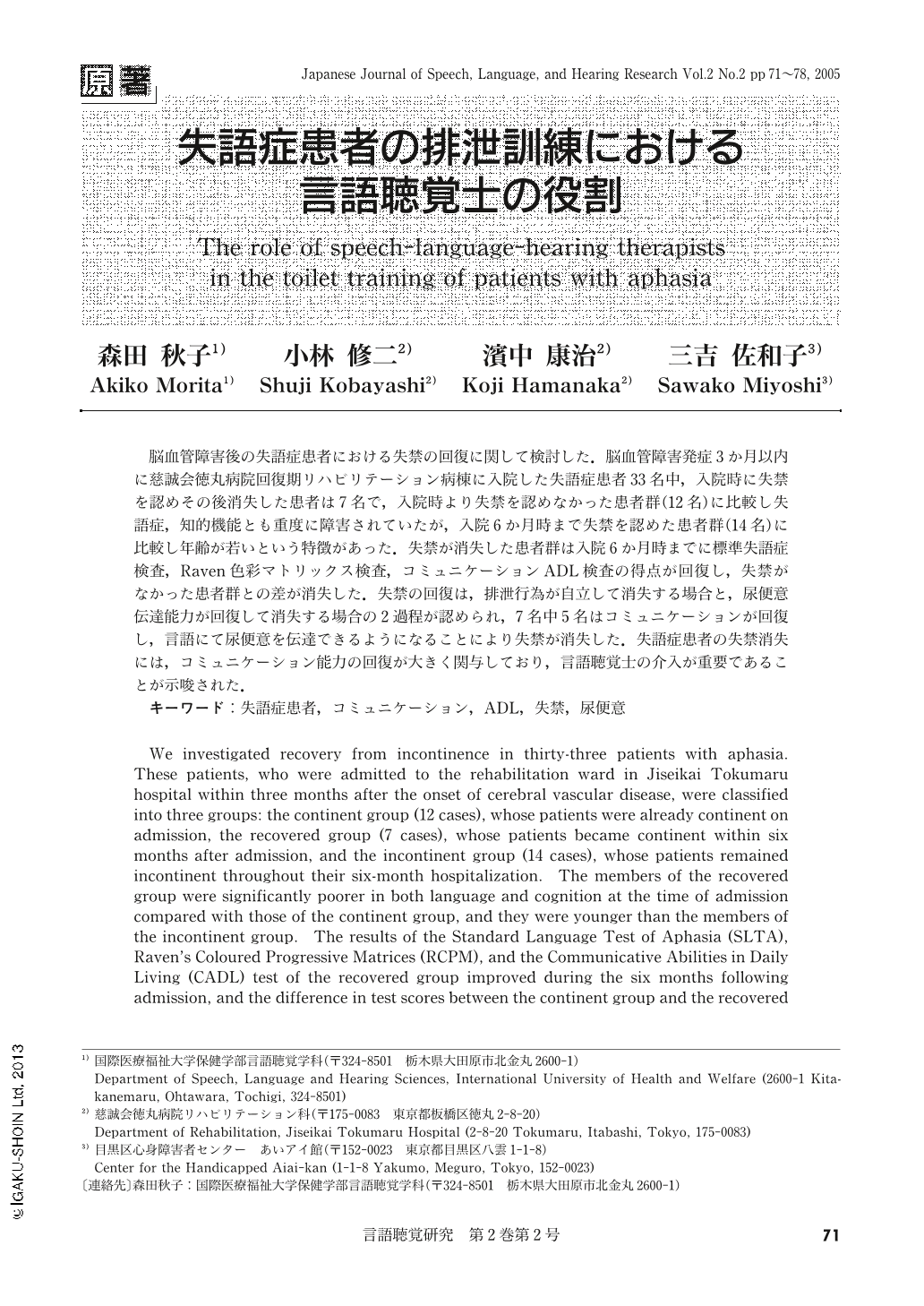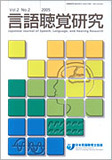Japanese
English
- 有料閲覧
- Abstract 文献概要
- 1ページ目 Look Inside
- 参考文献 Reference
- サイト内被引用 Cited by
脳血管障害後の失語症患者における失禁の回復に関して検討した.脳血管障害発症3か月以内に慈誠会徳丸病院回復期リハビリテーション病棟に入院した失語症患者33名中,入院時に失禁を認めその後消失した患者は7名で,入院時より失禁を認めなかった患者群(12名)に比較し失語症,知的機能とも重度に障害されていたが,入院6か月時まで失禁を認めた患者群(14名)に比較し年齢が若いという特徴があった.失禁が消失した患者群は入院6か月時までに標準失語症検査,Raven色彩マトリックス検査,コミュニケーションADL検査の得点が回復し,失禁がなかった患者群との差が消失した.失禁の回復は,排泄行為が自立して消失する場合と,尿便意伝達能力が回復して消失する場合の2過程が認められ,7名中5名はコミュニケーションが回復し,言語にて尿便意を伝達できるようになることにより失禁が消失した.失語症患者の失禁消失には,コミュニケーション能力の回復が大きく関与しており,言語聴覚士の介入が重要であることが示唆された.
We investigated recovery from incontinence in thirty-three patients with aphasia. These patients, who were admitted to the rehabilitation ward in Jiseikai Tokumaru hospital within three months after the onset of cerebral vascular disease, were classified into three groups: the continent group (12 cases), whose patients were already continent on admission, the recovered group (7 cases), whose patients became continent within six months after admission, and the incontinent group (14 cases), whose patients remained incontinent throughout their six-month hospitalization. The members of the recovered group were significantly poorer in both language and cognition at the time of admission compared with those of the continent group, and they were younger than the members of the incontinent group. The results of the Standard Language Test of Aphasia (SLTA), Raven's Coloured Progressive Matrices (RCPM), and the Communicative Abilities in Daily Living (CADL) test of the recovered group improved during the six months following admission, and the difference in test scores between the continent group and the recovered group disappeared at month six. Two types of processes were observed in the recovery from incontinence: one was the attainment of independent use of toilet, seen in two cases; the other was the recovery of communicative ability, seen in five cases. When patients in the latter category became able to indicate their need to answer the call of nature, their incontinence resolved. Therefore, recovery of communicative ability was considered important in the disappearance of incontinence. This suggests that intervention by speech-language-hearing therapists plays a significant role in the toilet training of patients with aphasia.

Copyright © 2005, Japanese Association of Speech-Language-Hearing Therapists. All rights reserved.


